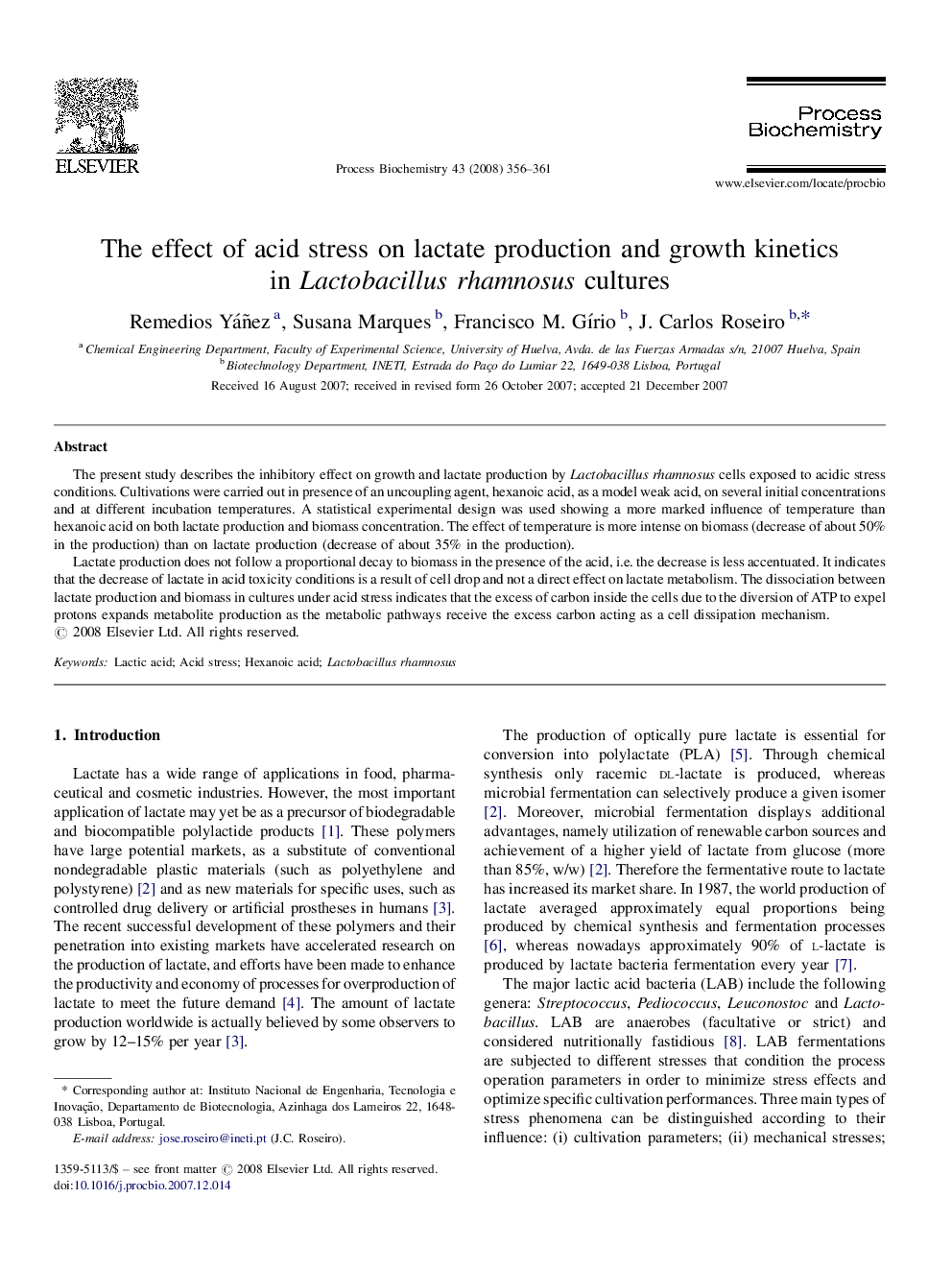| Article ID | Journal | Published Year | Pages | File Type |
|---|---|---|---|---|
| 35730 | Process Biochemistry | 2008 | 6 Pages |
The present study describes the inhibitory effect on growth and lactate production by Lactobacillus rhamnosus cells exposed to acidic stress conditions. Cultivations were carried out in presence of an uncoupling agent, hexanoic acid, as a model weak acid, on several initial concentrations and at different incubation temperatures. A statistical experimental design was used showing a more marked influence of temperature than hexanoic acid on both lactate production and biomass concentration. The effect of temperature is more intense on biomass (decrease of about 50% in the production) than on lactate production (decrease of about 35% in the production).Lactate production does not follow a proportional decay to biomass in the presence of the acid, i.e. the decrease is less accentuated. It indicates that the decrease of lactate in acid toxicity conditions is a result of cell drop and not a direct effect on lactate metabolism. The dissociation between lactate production and biomass in cultures under acid stress indicates that the excess of carbon inside the cells due to the diversion of ATP to expel protons expands metabolite production as the metabolic pathways receive the excess carbon acting as a cell dissipation mechanism.
